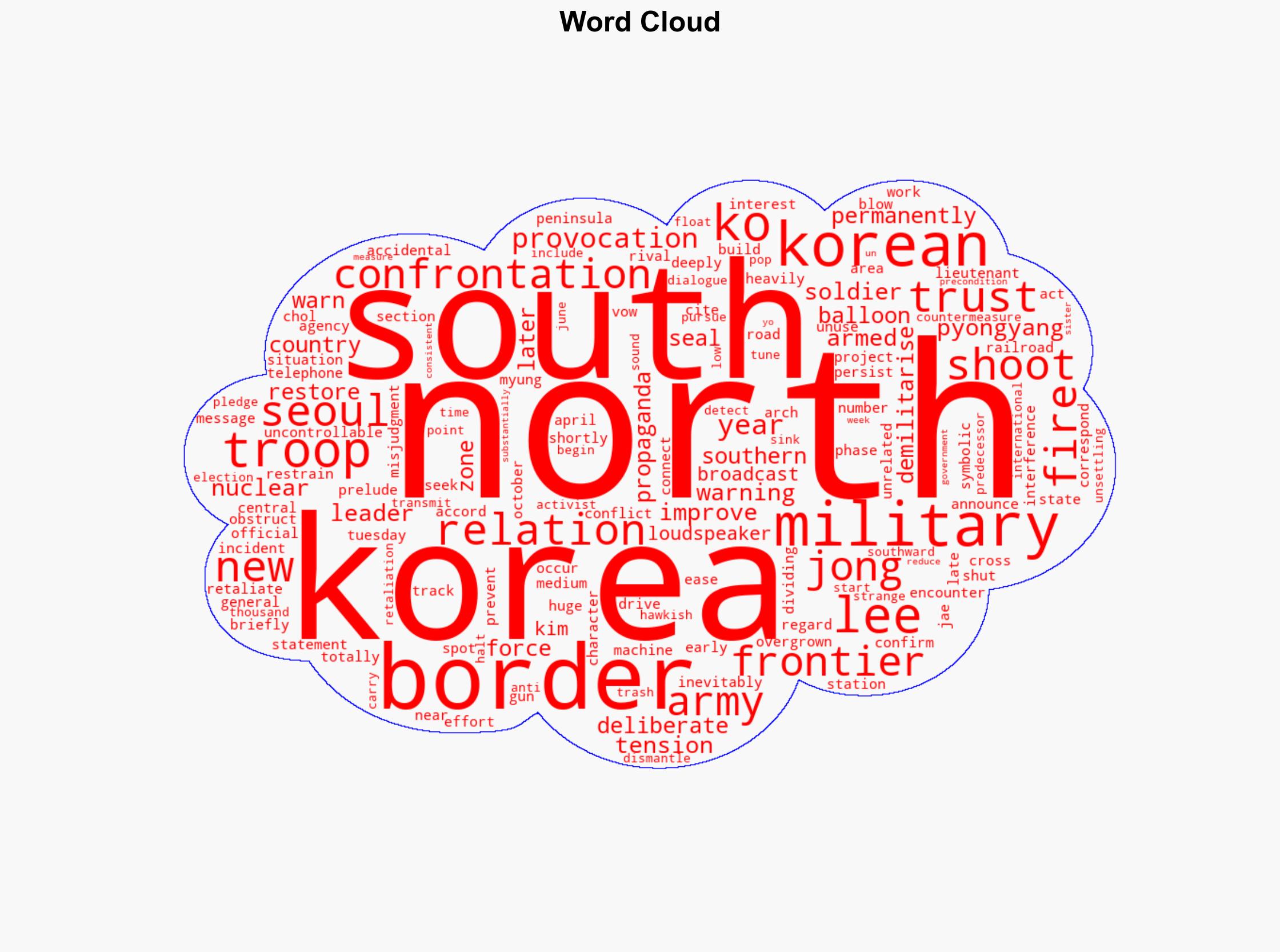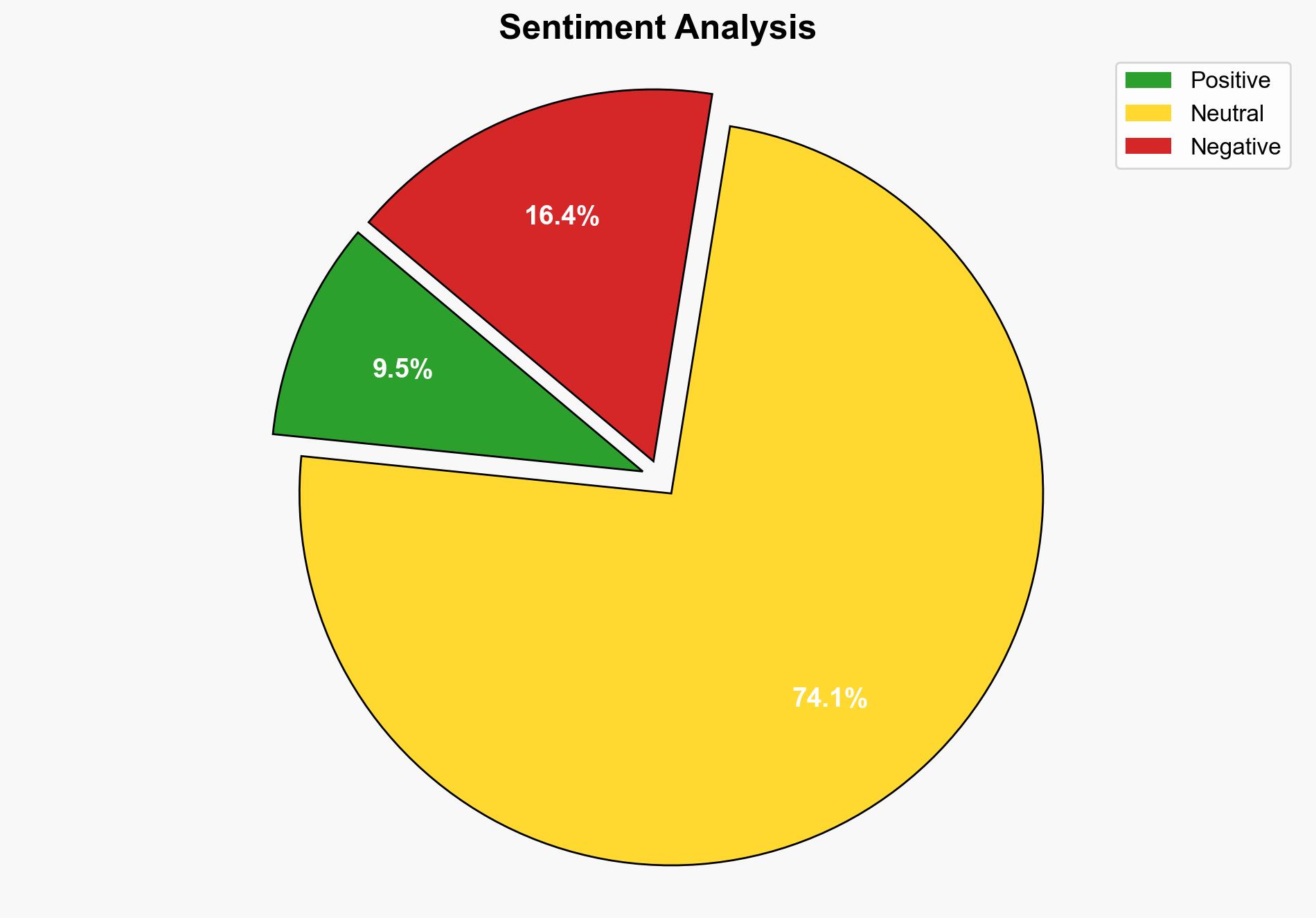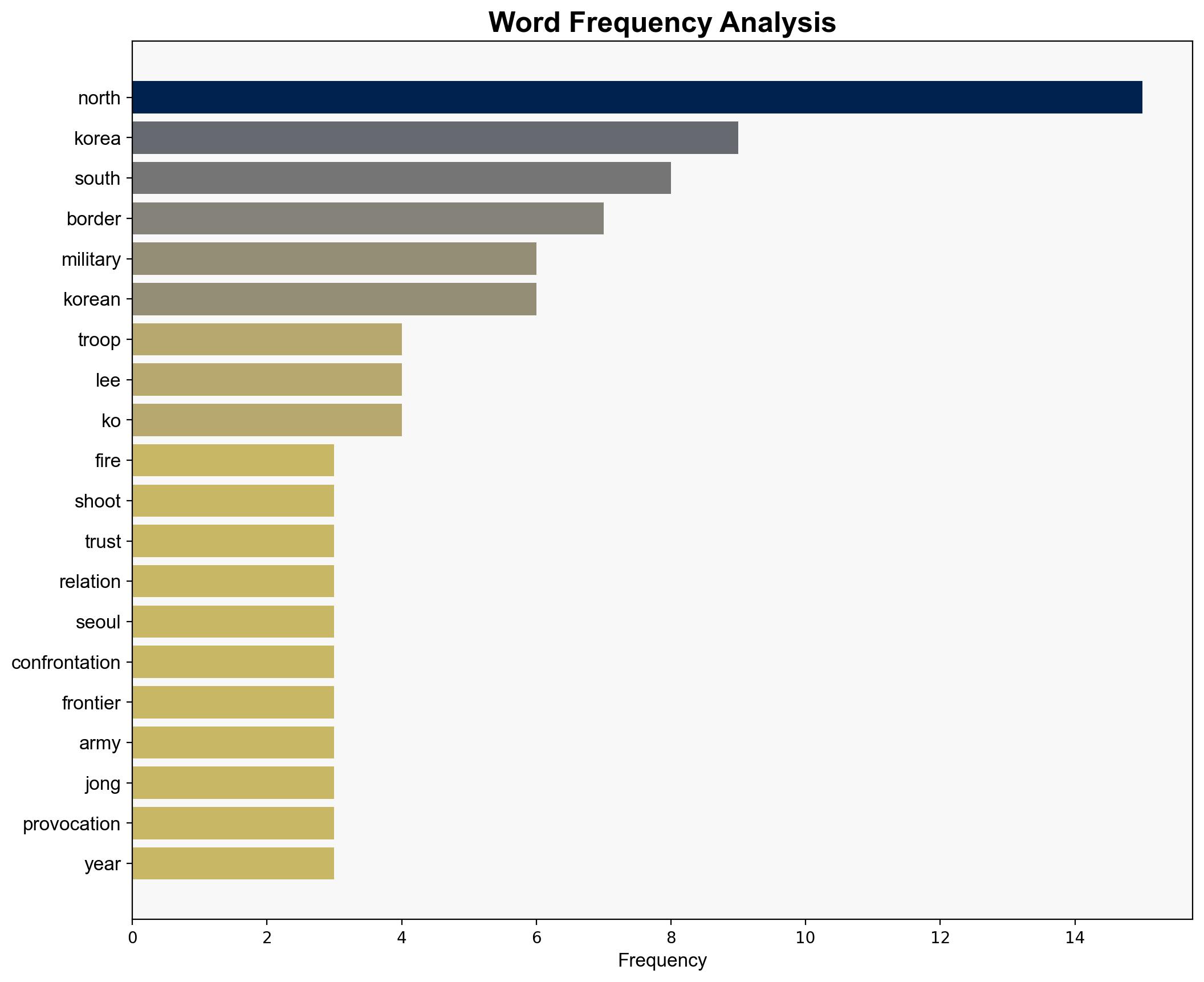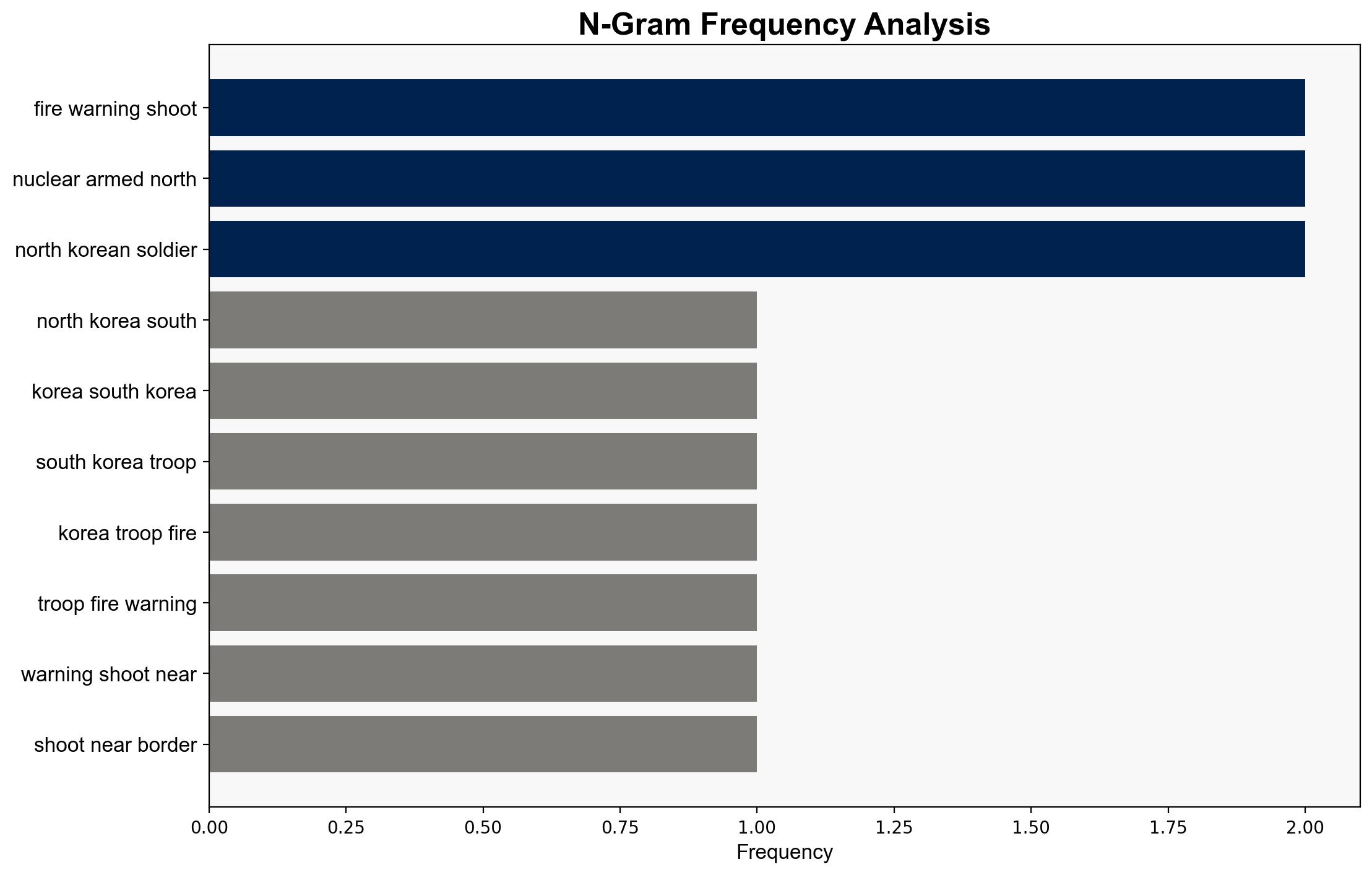North Korea says South Korea troops fired warning shots near border – CNA
Published on: 2025-08-23
Intelligence Report: North Korea says South Korea troops fired warning shots near border – CNA
1. BLUF (Bottom Line Up Front)
The most supported hypothesis is that the incident is a strategic maneuver by North Korea to test South Korea’s new leadership and gauge its response to provocations. Confidence level: Moderate. Recommended action: South Korea should engage in diplomatic channels to de-escalate tensions while maintaining a robust defensive posture.
2. Competing Hypotheses
1. **Hypothesis 1**: The warning shots were a deliberate provocation by North Korea to test the resolve of South Korea’s new leadership under Lee Jae-myung.
– **Supporting Evidence**: The timing of the incident coincides with the new leadership’s efforts to ease tensions, potentially exploiting perceived vulnerabilities.
– **SAT Used**: ACH 2.0 (Analysis of Competing Hypotheses) indicates this hypothesis is more consistent with North Korea’s historical pattern of testing new administrations.
2. **Hypothesis 2**: The incident was a defensive reaction by South Korea to a perceived threat from North Korean soldiers near the border.
– **Supporting Evidence**: South Korea’s official stance confirms the encounter as a response to a border crossing, aligning with standard military protocols.
– **SAT Used**: Bayesian Scenario Modeling suggests this is less likely due to the lack of corroborative evidence of an actual threat from the North.
3. Key Assumptions and Red Flags
– **Assumptions**: Both hypotheses assume rational decision-making by the involved parties. Hypothesis 1 assumes North Korea’s actions are strategic rather than reactionary.
– **Red Flags**: The lack of independent verification of the incident details poses a risk of bias. The reliance on state media sources from North Korea may introduce deception.
– **Blind Spots**: Potential internal political pressures within North Korea that might influence their actions are not fully explored.
4. Implications and Strategic Risks
– **Escalation Risks**: Continued provocations could lead to heightened military tensions, risking accidental conflict.
– **Geopolitical Impact**: The incident could strain South Korea’s diplomatic relations with regional allies and complicate its security posture.
– **Psychological Dimension**: The incident could undermine public confidence in South Korea’s leadership and its ability to manage North Korean relations.
5. Recommendations and Outlook
- **Mitigation**: South Korea should pursue backchannel communications with North Korea to clarify intentions and reduce misinterpretations.
- **Opportunity**: Leverage international diplomatic support to pressure North Korea into dialogue.
- **Scenario Projections**:
– **Best Case**: Successful diplomatic engagement leads to reduced tensions and resumption of dialogue.
– **Worst Case**: Misinterpretations escalate into military skirmishes, destabilizing the region.
– **Most Likely**: Continued low-level provocations with intermittent diplomatic overtures.
6. Key Individuals and Entities
– Lee Jae-myung
– Ko Jong-chol
– Kim Yo-jong
7. Thematic Tags
national security threats, regional focus, military provocation, diplomatic strategy




